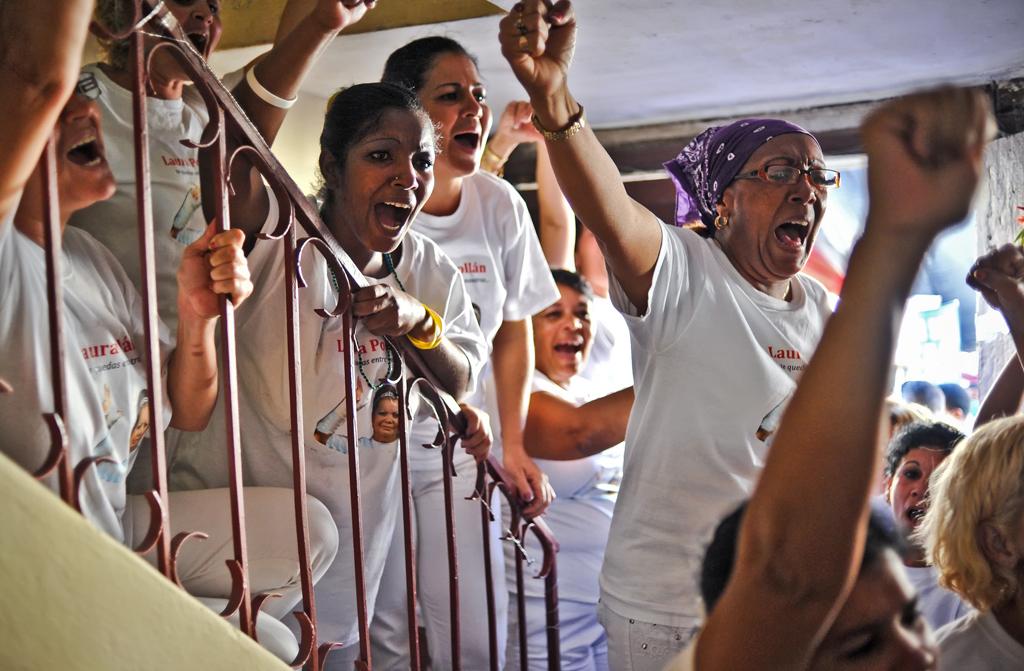Over 50 ‘Ladies in White’ protesters arrested by Cuban authorities ahead of Pope Benedict XVI’s visit
Acticvists of the Ladies in White opposition group protest against the Cuban government, on February 23, 2012 in Havana. The group commemorate the 2nd Anniversary of Cuban political prisoner Orlando Zapata’s death in jail.
Over 50 "Ladies in White" protesters were arrested in Cuba this weekend, just one week ahead of Pope Benedict XVI's visit to the country, Agence France Presse reported.
The protest group, largely made up of women, advocates for the release of political prisoners, and said that Cuba's Communist authorities have increased pressure on them recently, BBC News reported.
The Ladies have stepped up their protests with the approach of the Pope's visit on March 26, according to AFP.
The group's leader Bertha Soler and three dozen group members were taken into custody by police on Sunday, just hours before they staged a regular march down Quinta Avenida in Havana, the Associated Press reported.
"They were going to leave the headquarters to take part in the mass held every Sunday, but when they went out they were all detained," Odalys Sanabria, a member of the group, told the AP.
More from GlobalPost: A more open Cuba, blessed by the Pope
Around 30 other supporters made it to the peaceful march, but state security agents moved in when the Ladies tried to extend the protest down streets the did not normlly use. Plain-clothed officers then ushered the protesters onto a state security bus and took them away, according to BBC News and AFP.
A group spokeswoman told the BBC that 19 Ladies had also been detained on Saturday, and three have since been released without charge. By Sunday evening, many of the dissidents arrested on Sunday morning been released, though Soler was apparently still being held, according to the AP.
"This weekend has been another one full of political repression by the totalitarian government," said Elizardo Sanchez, a member of the banned but tolerated Cuban Human Rights Commission, according to the BBC. "The worst part of it is that the victims of the repression have been, basically, women."
The Ladies in White were founded in 2003, not long after Cuban authorities jailed 75 intellectuals, activists, and social commentators and sentenced them to long prison terms, the AP reported. All have since been freed, and many have gone into exile.
The Catholic church has played a a large role in the release of political prisoners, but some opposition members have been critical of the Church for cooperating with the Communist regime, according to AFP.
After decades of official atheism, Cuba now has cordial relations with Roman Catholics and other churches, AFP reported. Pope Benedict's visit to Cuba will be the first by a pope since John Paul II in 1998.
More from GlobalPost: Pope Benedict wants to meet Fidel Castro on Cuba trip
Our coverage reaches millions each week, but only a small fraction of listeners contribute to sustain our program. We still need 224 more people to donate $100 or $10/monthly to unlock our $67,000 match. Will you help us get there today?
